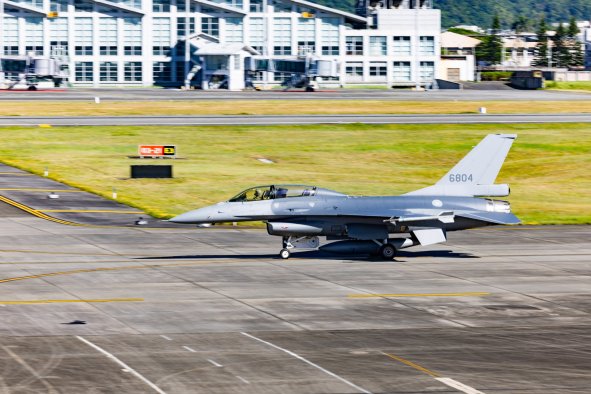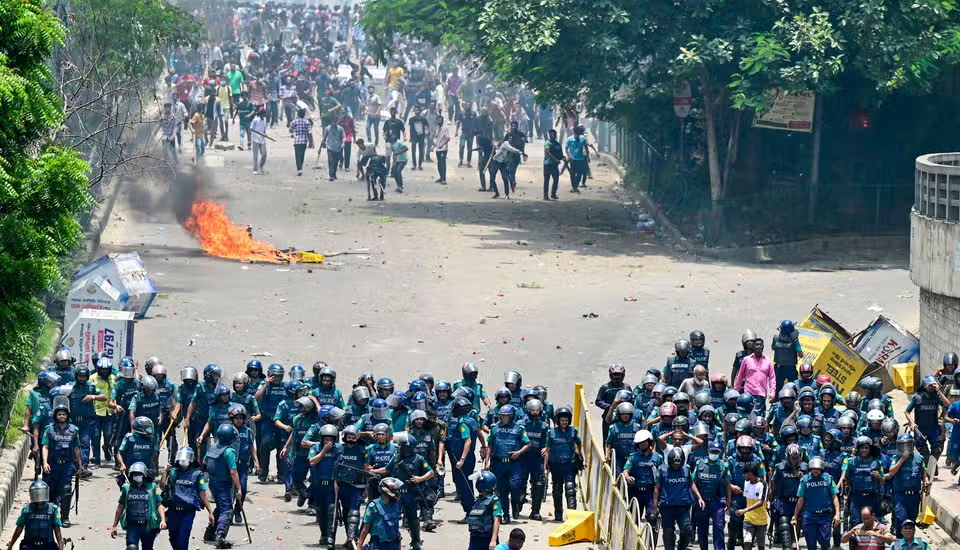Taiwan's military on Monday launched the 2024 edition of its annual Han Kuang series of war games aimed at resisting an invasion from an increasingly aggressive China.
This year's exercises have been updated to include what Taiwan's Defense Ministry has called "unscripted" scenarios to better simulate wartime conditions, a change one defense analyst told Newsweek was adopted after the "wake-up call" of Russia's 2022 invasion of Ukraine.
The drills, which will take place through Friday in strategic areas across Taiwan, come as Taipei faces increasing pressure from Beijing. China claims Taiwan as its territory, though Beijing's Chinese Communist Party-led government has never ruled the island.
Chinese President Xi Jinping has stressed that eventual unification with Taiwan is inevitable, through force if necessary. Chinese forces encircled Taiwan with major air, ground, and sea-based drills in May after the inauguration of Taiwanese President Lai Ching-te, a critic of Beijing who emphasized Taiwan's sovereignty in his inaugural speech.
This year's drills are designed to better reflect the uncertainties of actual warfare in order to test Taiwanese forces' limitations, with a focus on what Taiwan's Defense Ministry has called "unscripted" scenarios.
This is a departure from previous years; participating troops are not being briefed on where or when the "enemy" would strike and with what weapons systems, Taiwan's state-run Central News Agency cited the Defense Ministry as saying.
As a result of the added uncertainties of the new format, live-fire drills will not be held on Taiwan's main island to reduce the likelihood of an accident. Instead, live ammunition will only be used during training on Kinmen and Matsu, outlying Taiwanese islands off China's coast.
In addition, an attack may come at night, requiring defending forces to maintain combat preparedness 24 hours per day.
The latest Han Kuang drills have also been designed to assess how Taiwanese forces would handle a decentralized command structure in the event they are cut off from headquarters, as could happen should Chinese air strikes disable communications infrastructure before any invasion.
Units are expected to demonstrate their understanding of the rules of engagement, updated last year, as they react with greater autonomy in relevant situations.
Ou Si-fu, a research fellow at Taiwan's Institute for National Defense and Security Research think tank, said the command structure of the Republic of China (the official name of Taiwan's government), originally modeled after the Soviet Union's Red Army, remained "highly rigid" even after Taiwan democratized.
"The lesson from the Ukraine war is a wake-up call for Taiwan's military. They must reform the centralized command system into a more flexible and decentralized one," he told Newsweek.
Ou said Chinese forces are sure to try to target Taiwan's command system in a major campaign, whether by air strikes or a blockade, to neutralize resistance. Thus, "a NATO style of decentralized command system and delegating decision-making power to the mid and bottom officers in order to adapt to the battlefield situation is a necessity for Taiwan military's survival," he added.
China's Foreign Ministry did not immediately respond to a written request for comment.
Some U.S. officials, including CIA Director Bill Burns and former Indo-Pacific Command chief Adm. John Aquilino, believe Xi is preparing his military to be capable of seizing Taiwan by 2027. While Washington is Taiwan's top arms supplier, it has for decades maintained a policy of ambiguity on whether it would come to Taiwan's defense in the event of an invasion.
Disclaimer: The copyright of this article belongs to the original author. Reposting this article is solely for the purpose of information dissemination and does not constitute any investment advice. If there is any infringement, please contact us immediately. We will make corrections or deletions as necessary. Thank you.



